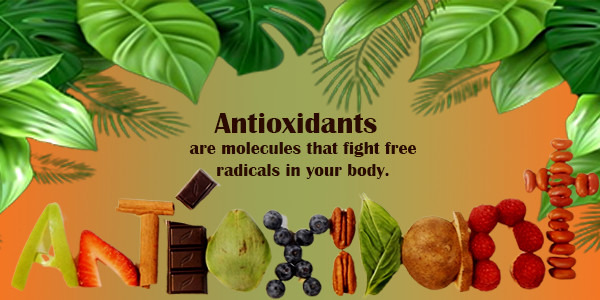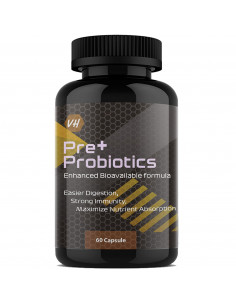- Improved digestion: Prebiotics help to stimulate the growth of beneficial bacteria in the gut, which can improve digestive function and reduce symptoms of digestive disorders such as constipation and irritable bowel syndrome (IBS). (1)
- Boosted immunity: Probiotics have been shown to help strengthen the immune system by promoting the growth of beneficial bacteria in the gut and reducing the growth of harmful bacteria. (2)
- Reduced inflammation: Both prebiotics and probiotics have been shown to reduce inflammation in the gut, which can help to reduce the risk of chronic conditions such as heart disease and type 2 diabetes. (3)
- Improved mental health: Probiotics have been shown to improve symptoms of depression, anxiety, and stress by altering the gut microbiome. (4)
- Improved cardiovascular health: Some studies have shown that consuming probiotics can help to reduce cholesterol levels, blood pressure, and the risk of cardiovascular disease. (5)
- Better weight management: Prebiotics and probiotics have been shown to help regulate weight by improving gut health and promoting a healthy balance of gut bacteria. (6)
- Improved skin health: Probiotics have been shown to improve skin health by reducing inflammation and promoting a healthy balance of bacteria on the skin. (7)
- Reduced allergies and autoimmune disorders: Probiotics have been shown to help reduce the risk of allergies and autoimmune disorders by promoting a healthy balance of gut bacteria. (8)
- Enhanced nutrient absorption: Prebiotics and probiotics have been shown to improve nutrient absorption by promoting a healthy balance of gut bacteria and improving digestive function. (9)
- Improved bone health: Probiotics have been shown to improve bone health by reducing inflammation and improving the absorption of calcium and other minerals. (10)
It's important to note that these benefits may vary depending on the specific strains of prebiotics and probiotics consumed, as well as the individual's health status and diet.






